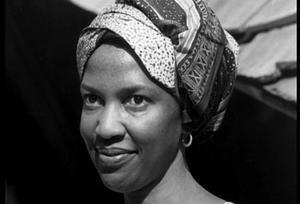As the school year has started, it is worth continuing the discussion of hook-up culture, particularly on the campuses of Catholic colleges and universities. Whatever one’s perspective on the Church’s sexual ethics, one should be concerned about the cultural aspects of “hook-up” culture. As Donna Freitas indicates, “hook-up culture” is an environment that forms people through pretend and coercion into the belief that every college student is having sex and none of them want a meaningful relationship. It is a culture of pretend because college students overestimate the number of their peers having sex and on the whole want meaningful relationships. It is also a culture of coercion. According to the Center for Disease Control, around twenty percent of dating relationships have non-sexual violence, and twenty percent of women in college experience completed or attempted rape. Eighty-five percent of these assailants are known, usually boyfriends, ex-boyfriends, or classmates. Finally, resistance to this narrative often results in a kind of “social suicide”.
One might assume that Catholic colleges and universities would shape people differently and thereby generate a different culture. After all, these communities have an overarching Christian mission of fostering love of God and others. Moreover, several scientific studies suggest people with greater religious commitment—typically measured by beliefs and additional factors such as worship attendance—report less abuse in relationships, lower rates of drugs and alcohol use, greater success in school, having more engaged parents (See Soul Searching), being more engaged in society, being more openly conversant about sex and dating relationships, and are less likely to participate in hook-up culture.
Yet, none of the three studies on dating practices on Catholic colleges and universities found any differences between them and non-religious institutions. In Hooking Up, Kathleen Bogle found that students at the Catholic schools responded similarly to the students at the large state school on issues of sex. Moreover, the students at the Catholic school did not see religion having any influence on their behavior. Freitas’s survey of Catholic schools revealed that Catholic institutions did not differ from public schools when it came to “hook-up” culture. Finally, Amy Burdette and her colleagues found that “hooking up” was greater in individuals who identified themselves as Catholic.
Perhaps the best hope is further research. While the three studies above provide indispensable data, they are just the beginning of the research. Bogle included only one Catholic school and Freitas two. Burdette included only a small percentage of women at Catholic schools (approximately 55 out of 919). Hopefully, more schools will examine the culture on their campuses to see what is happening and, more importantly, what helps to make the place better. I am hoping not so much for an investigation of individuals and their sexual activities but rather looking how colleges and universities can be more honest about sexual activity, hinder violence, and create a place conducive to the flourishing of students. In short, we need on Catholic college campuses what Dorothy Day called for in society, a place where it is “easier to be good.”



Jason– This is a really important post, espoecially because I think the “formation aspect” of Catholic schools is over-associated with the theology classroom and under-associated with residence life culture as a whole.
I would echo the need for more research, since these discussions can get very anecdotal. But what I’ve seen in my two jobs, at quite different Catholic residential colleges, suggests a couple generalizations. First, the schools are much more willing to engage in “peer pressure” style tactics against excessive drinking than they are about excessive sex. Exzcessive drinking is both a legal problem for schools, and somehow seems to get lumped with “health” as a permissible topic to discuss. (That doesn’t mean the drinking culture is overcome) But so far as I can tell, res life staffs are not really comfortable coming out with, say, pro-abstinence “peer pressure” propaganda. Second, I’d say that there is a subculture of support for the anti-hook-up culture… but this subculture depends upon being heavily religious, usually in a particular way, and so I’ve had students complain that, unless they buy into the whole religious package, they are left with the hook-up culture. And unfortunately, the hook-up culture – rather than traditional “dating” – ends up being the primary way to “meet people.” And a third point: in practical terms, schools are reluctant to do any of the practices that might make hooking up in dorms more difficult.
Jason,
Thanks for this post. Have you read the recent piece in Atlantic Monthly arguing that hook-ups are just part of life now, not devastating, not a barrier to long term relationships in college or intimacy? http://www.theatlantic.com/magazine/archive/2012/09/boys-on-the-side/309062/ Though I’ve been convinced by Frietas and others (not to mention my own students), this study is troubling.